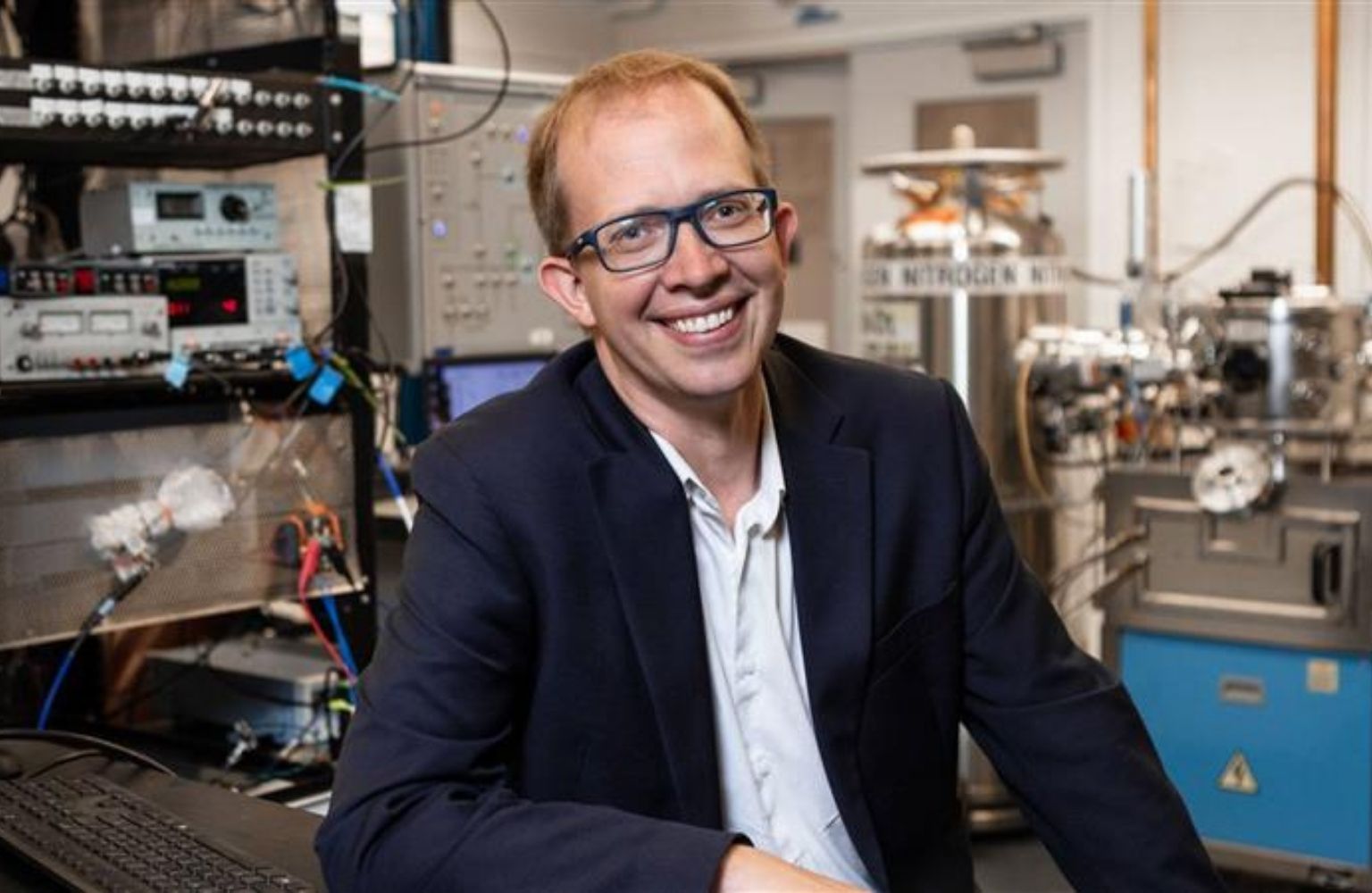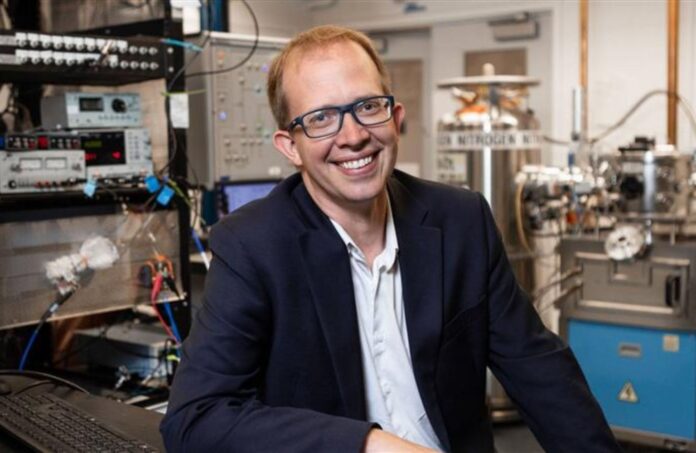Andrew Houck, a Princeton University professor and national leader in the field of quantum science and engineering, has been appointed dean of the university’s School of Engineering and Applied Science, effective August 1.
Houck, who co-directs the Princeton Quantum Initiative and leads a federally funded national quantum research center, is the Anthony H.P. Lee ’79 P11 P14 Professor of Electrical and Computer Engineering.
“I am thrilled that Andrew Houck will be the next dean of Princeton’s School of Engineering and Applied Science,” said President Christopher L. Eisgruber. “He has excelled at Princeton as a decorated student, beloved teacher and team-building researcher. Andrew understands the soul of the school, and he has the exceptional vision and skills required to lead it forward at a time of both turbulence and opportunity.”
Houck, who was valedictorian of Princeton’s undergraduate class of 2000, earned his Ph.D. in physics at Harvard University, then worked in a prominent quantum physics lab at Yale University before joining the Princeton faculty in 2008. He played a leading role in developing one of the most promising approaches to building a quantum computer. Additionally, he has consulted widely across industry and government to help guide effective strategies for developing quantum technology.
“Andrew Houck is a fantastic scholar, an innovative and devoted educator, and a seasoned leader of interdisciplinary research,” said Provost Jennifer Rexford. “He will be an exceptional dean of engineering at an important time for the school, the university and our country, and I so look forward to working with him.”
Houck succeeds Dean Andrea Goldsmith, who will become president of Stony Brook University. He said he is excited to follow in the footsteps of Goldsmith, who has overseen a period of dramatic growth for the school. That includes new buildings set to open this fall, multiple interdisciplinary initiatives, expansion in fields such as bioengineering, artificial intelligence and quantum engineering, and about 40 new faculty members.
Houck said a new priority will be to listen to those new faculty and support emerging ideas “so that we’re not just riding the current amazing technological wave in quantum, AI and bio, but also seeding and nurturing whatever is next on the horizon.”

